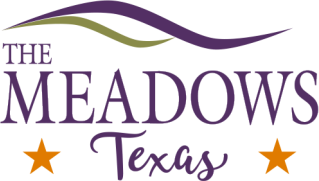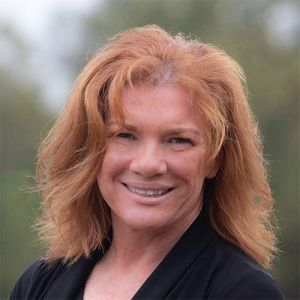






The Meadows Texas
Verified Center
This provider's information has been quality-checked by Recovery.com's Research Team for accuracy and completeness, including center verification through appropriate third-party organizations.
Treatment Focus
This center treats substance use disorders and mental health conditions. You'll receive individualized care catered to your unique situation and diagnosis, learn practical skills for recovery, and make new connections in a restorative environment.
Primary Level of Care
Offering intensive care with 24/7 monitoring, residential treatment is typically 30 days and can cover multiple levels of care. Length can range from 14 to 90 days typically.
Treatment Focus
This center treats substance use disorders and mental health conditions. You'll receive individualized care catered to your unique situation and diagnosis, learn practical skills for recovery, and make new connections in a restorative environment.
Primary Level of Care
Offering intensive care with 24/7 monitoring, residential treatment is typically 30 days and can cover multiple levels of care. Length can range from 14 to 90 days typically.
Provider's Policy
Our admissions specialists are trained to work with your insurance company to determine the highest level of coverage for which you qualify. We will walk you through the process and go over your financial options with you. We are in-network with many major providers.
The Meadows Texas
The Meadows Texas
About The Meadows Texas
At The Meadows Texas, clients find compassionate, expert care for addiction, trauma, and co-occurring mental health conditions like anxiety, depression, and PTSD. Treatment is available at the detox and residential levels, giving clients a safe and supportive space to begin recovering.
Turn Old Wounds into Strengths
Using a proven approach called The Meadows Model, clients look at how past experiences and emotional pain can lead to addiction or unhealthy patterns. Clients learn healthier ways to cope and rebuild self-worth through individual and group therapy, trauma work, and 12-Step meetings. Everyone is treated with respect, and the environment feels like a safe place to release guilt and start feeling hope again.
Relearn How Good Life Can Feel
The campus offers calm, inviting spaces for rest and reflection, but healing doesn’t stop when clients leave campus. Clients take what they learn into the community by sharing sober meals at local restaurants, grocery shopping, or enjoying simple moments like getting their nails done—all while practicing new habits and proving to themselves that life can feel good without substances.
Keep Growing Long after Leaving
At The Meadows Texas, clients transition into next steps that fit their lives, whether that’s a partial hospitalization (PHP) or intensive outpatient program (IOP) , sober living, neurofeedback, or virtual options for ongoing therapy. Alumni stay connected through retreats and an in-app community, giving them access to peers and encouragement long after they leave campus.

Highlights from the Center
Highlights
These highlights are provided by and paid for by the center.
Therapeutic Location
Pool
Trauma-Informed Care
Master's and Doctoral Level Therapists
Center Overview
Treatment Focus
This center treats substance use disorders and mental health conditions. You'll receive individualized care catered to your unique situation and diagnosis, learn practical skills for recovery, and make new connections in a restorative environment.
Joint Commission Accredited
The Joint Commission accreditation is a voluntary, objective process that evaluates and accredits healthcare organizations (like treatment centers) based on performance standards designed to improve quality and safety for patients. To be accredited means the treatment center has been found to meet the Commission's standards for quality and safety in patient care.

Insurance Accepted
Cash Pay Rates
Estimated Cash Pay Rate
Center pricing can vary based on program and length of stay. Contact the center for more information. Recovery.com strives for price transparency so you can make an informed decision.
Meet Your Care Team

Lori Bachman
Executive Director
LCSW

Paul Lee
Medical Director
MD

Aaron Wilson
Chief Medical Officer
MD

Denice Slemmons
Director of Nursing
RN

Rebekah Cook
Medical Nurse Practitioner
ANP

Lori Stelzer
Primary Therapist
MS, LPC, CCTP, EMDR

Laura Terry
Continuing Care Coordinator

James Vaughan
Director of Operations

Jena Dippel
Alumni/Medical Records

Grace Vega
Chef

Kevin Vrana
Reception/Spiritual Guidance

Kevin McCauley
Senior Fellow, Meadows Behavioral Healthcare
MD




Levels of Care






Your Care Options
Specializations
Alcohol
Using alcohol as a coping mechanism, or drinking excessively throughout the week, signals an alcohol use disorder.
Co-Occurring Disorders
A person with multiple mental health diagnoses, such as addiction and depression, has co-occurring disorders also called dual diagnosis.
Cocaine
Cocaine is a stimulant with euphoric effects. Agitation, muscle ticks, psychosis, and heart issues are common symptoms of cocaine abuse.
Family Therapy
Family therapy addresses group dynamics within a family system, with a focus on improving communication and interrupting unhealthy relationship patterns.
Prescription Drugs
It's possible to abuse any drug, even prescribed ones. If you crave a medication, or regularly take it more than directed, you may have an addiction.
Somatic Experiencing
This method treats emotional trauma stored in the body. A therapist helps patients work through the physical feelings associated with emotional pain.
Trauma
Some traumatic events are so disturbing that they cause long-term mental health problems. Those ongoing issues can also be referred to as "trauma."
Twelve Step
Incorporating spirituality, community, and responsibility, 12-Step philosophies prioritize the guidance of a Higher Power and a continuation of 12-Step practices.
Who We Treat
Men and Women
Men and women attend treatment for addiction in a co-ed setting, going to therapy groups together to share experiences, struggles, and successes.
Approaches
Evidence-Based
A combination of scientifically rooted therapies and treatments make up evidence-based care, defined by their measured and proven results.
Individual Treatment
Individual care meets the needs of each patient, using personalized treatment to provide them the most relevant care and greatest chance of success.
Twelve Step
Incorporating spirituality, community, and responsibility, 12-Step philosophies prioritize the guidance of a Higher Power and a continuation of 12-Step practices.
Therapies
1-on-1 Counseling
Patient and therapist meet 1-on-1 to work through difficult emotions and behavioral challenges in a personal, private setting.
Aromatherapy
Inhaling or topically applying essential oils can help relieve stress, soothe pains, and relieve emotional distress.
Experiential Therapy
With this approach, patients heal by doing. Therapists help patients process difficult emotions to speak, using guided activities like art or dance.
Family Therapy
Family therapy addresses group dynamics within a family system, with a focus on improving communication and interrupting unhealthy relationship patterns.
Massage Therapy
Massage therapy relieves physical and emotional tension, reduces pain, promotes relaxation, and improves emotion regulation.
Medication-Assisted Treatment
Combined with behavioral therapy, prescribed medications can enhance treatment by relieving withdrawal symptoms and focus patients on their recovery.
Conditions We Treat
Anxiety
Anxiety is a common mental health condition that can include excessive worry, panic attacks, physical tension, and increased blood pressure.
Bipolar
This mental health condition is characterized by extreme mood swings between depression, mania, and remission.
Depression
Symptoms of depression may include fatigue, a sense of numbness, and loss of interest in activities. This condition can range from mild to severe.
Trauma
Some traumatic events are so disturbing that they cause long-term mental health problems. Those ongoing issues can also be referred to as "trauma."
Substances We Treat
Alcohol
Using alcohol as a coping mechanism, or drinking excessively throughout the week, signals an alcohol use disorder.
Co-Occurring Disorders
A person with multiple mental health diagnoses, such as addiction and depression, has co-occurring disorders also called dual diagnosis.
Cocaine
Cocaine is a stimulant with euphoric effects. Agitation, muscle ticks, psychosis, and heart issues are common symptoms of cocaine abuse.
Drug Addiction
Drug addiction is the excessive and repetitive use of substances, despite harmful consequences to a person's life, health, and relationships.
Heroin
Heroin is a highly addictive and illegal opioid. It can cause insomnia, collapsed veins, heart issues, and additional mental health issues.
Methamphetamine
Methamphetamine, or meth, increases energy, agitation, and paranoia. Long-term use can result in severe physical and mental health issues.
Opioids
Opioids produce pain-relief and euphoria, which can lead to addiction. This class of drugs includes prescribed medication and the illegal drug heroin.
Prescription Drugs
It's possible to abuse any drug, even prescribed ones. If you crave a medication, or regularly take it more than directed, you may have an addiction.
Languages
Aftercare
Care Designed for Your Needs
Personal Amenities
Amenities
Special Considerations
Center Pets
Addiction and mental health facilities with pets allow patients to interact with friendly dogs, cats, horses, and in some cases, even dolphins.
Activities
Yoga
Yoga is both a physical and spiritual practice. It includes a flow of movement, breathing techniques, and meditation.
Off-Site Activities
Smoking and Vaping Policy

What people are saying
Treatment
4.2
Accommodations
4.1
Food & Nutrition
4.1
Value
4.2
Taylor B
Reviewed 05/01/20
Review from Rehabs.com
Bonnie
Reviewed 05/01/20
Review from Rehabs.com
Meghan H.
Reviewed 01/23/18
Review from Rehabs.com
Pat
Reviewed 01/26/17
Review from Rehabs.com
Ashley
Reviewed 01/24/18
Review from Rehabs.com





